Consciousness is not magic!
This is my first blog on the study of consciousness, as part of a series of posts planned.
I feel very lucky, both to work as a research scientist at the Sackler Centre for Consciousness Science, and to have been given the chance to publish a book on consciousness for a general audience, where I describe the current scientific and medical aspects of the field, and outline my own views on the purpose of consciousness, and how our brains generate our experiences.
But hopefully this series of posts will give me a separate, less formal, more interactive (lots of comments, please!) outlet for my passion to communicate the science of consciousness.
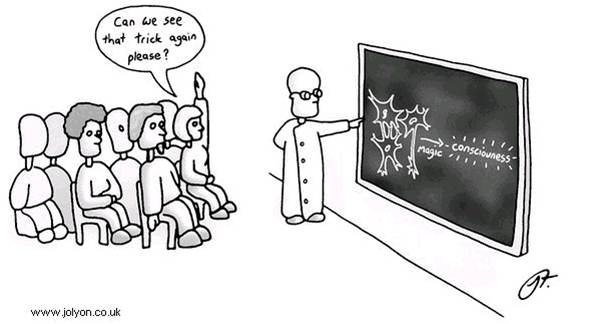
It is easy to view consciousness as a kind of magic, either in the name of religion and souls, or by how alien it at first appears to science. But many fields, such as the study of life many years ago, have their popular magical states eroded by careful scientific study. I will be robustly arguing here that consciousness is in the midst of a similar revolution.
The investigation of our own awareness is a blossoming scientific field, where experiments are already illuminating many exciting details about this most intimate of scientific subjects.
Consciousness is a vitally important scientific field
Consciousness is in many ways the most important question remaining for science.
On a personal level, consciousness is where the meaning to life resides. All the moments that matter to us, that punctuate our lives, from falling in love to seeing our child’s first smile, to that perfect holiday surrounded by snow-capped mountains, are obviously conscious events. If none of these events were conscious, if we weren’t conscious to experience any of them, we’d hardly consider ourselves alive – at least not in any way that matters.
Whether I’m revelling in a glowing pleasure or even if I’m enduring a sharp sadness, I always sense that behind everything there is the privilege and passion of experience. Our consciousness is the essence of who we perceive ourselves to be. It is the citadel for our senses, the melting pot of thoughts, the welcoming home for every emotion that pricks or placates us. For us, consciousness simply is the currency of life.
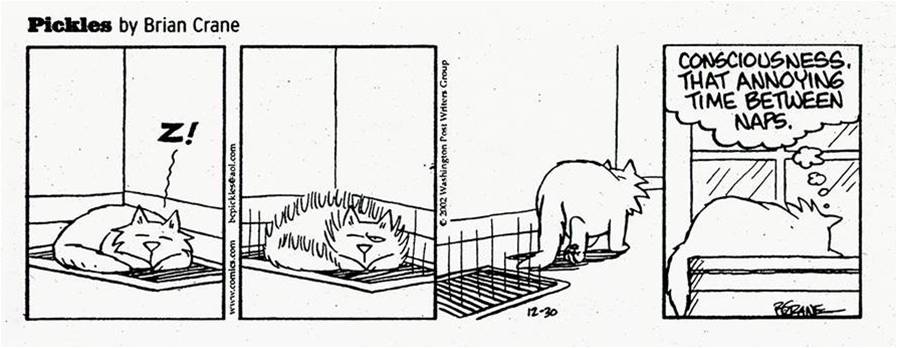 Although some philosophers and scientists suspect that consciousness is a pointless side effect of thought, I believe the opposite, that our consciousness might indeed be responsible for our greatest intellectual achievements, both in the arts and sciences. Whether our creativity and insight originates in our unconscious mind or not (I believe that the role of the unconscious has been over-estimated here), at the very least, our consciousness is the conduit to inspect these gems of inspiration, and the driving force for turning them into reality.
Although some philosophers and scientists suspect that consciousness is a pointless side effect of thought, I believe the opposite, that our consciousness might indeed be responsible for our greatest intellectual achievements, both in the arts and sciences. Whether our creativity and insight originates in our unconscious mind or not (I believe that the role of the unconscious has been over-estimated here), at the very least, our consciousness is the conduit to inspect these gems of inspiration, and the driving force for turning them into reality.
The significance of laughter?
It is not surprising, therefore, that questions about consciousness lie at the heart of many of our most fundamental ethical debates, one of which is abortion and the right to life. This is an appropriate point for me to play my proud father card, and slip in a few gratuitously oversized pictures of my daughter, Lalana.
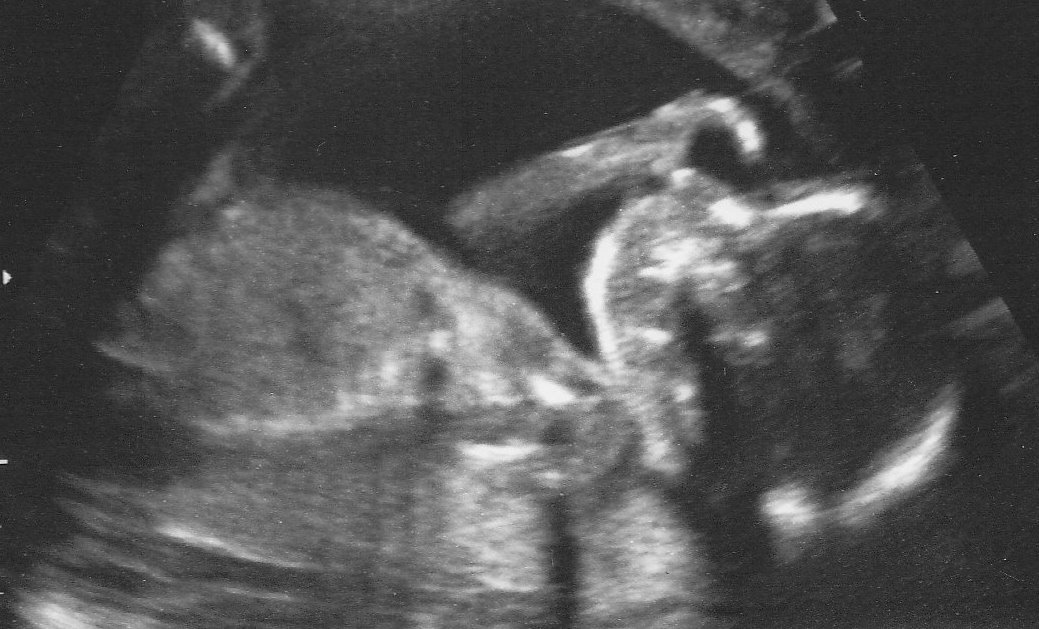 The image above was halfway through pregnancy, at 20 weeks. Soon after this scan, we could clearly feel her kicking, and towards the end of pregnancy, she seemed to have periods of greater activity in the evenings, would kick more if we gave her mother’s stomach a little prod, and we as excited parents-to-be even speculated that all this excitability would lead to a lively child.
The image above was halfway through pregnancy, at 20 weeks. Soon after this scan, we could clearly feel her kicking, and towards the end of pregnancy, she seemed to have periods of greater activity in the evenings, would kick more if we gave her mother’s stomach a little prod, and we as excited parents-to-be even speculated that all this excitability would lead to a lively child.
And here my daughter was 6 months old, kicking her feet almost as much as inside the womb, but now her limbs pump upwards almost frantically as she experiences her first tastes of such gourmet “solid” foods as mashed sweet potato or strawberry, and she is almost overwhelmed with excitement at the fantastic sensations on offer when boring milk is set aside. She smiles and laughs readily, and her laughing voice particularly, for a parent, brings with it a firm intuition that your child is aware.
And finally this is a recent photo of her. As a 20 month old toddler, Lalana now runs around everywhere and speaks 100 words or so, albeit very unclearly. She can convey events to us that happened days or weeks before, usually because she is still so excited about them! She can also store wishes for the future. For instance, we might offhand tell her that when we get home, we’ll play with making bubbles. Hours later, as soon as she enters the house, she’ll run straight to the shelf with the bubble bottle, screaming “Bubbu!!! Bubbu!!!” As this illustrates, she has a strong set of loves and hates, and her emotionally sensitive, passionate, cheeky, disturbingly stubborn personality is already very visible.
Having prided myself on my objectivity throughout my adult life, I’ve embarrassingly found that my daughter is the main exception to this aim: I’ve not only been taken aback by how fiercely I love her, but also by how proud I am of her and how quickly I distort the truth to make sure she seems exceptional in every way to my clouded eyes. But when I can step back from these views, I regularly ask myself at what point did she become conscious. Was it when she was still in the womb, kicking away? Was it when she first opened her eyes to the outside world on the day of her birth? Was it during her first fits of hysterics a few months later? Or was it even with her first words when she was well over a year later?
These aren’t just personal wonderings, though. In the USA, people have been murdered for carrying out abortions. In many other countries, abortion is illegal, even if the woman has been raped. Although such positions are usually determined by religion, the related mindset is usually that there foetuses are already conscious, and even capable of feeling pain. But, in fact, the evidence to support this is extremely slim.
I’m not saying I agree with this view, but if it were the case that language was required for consciousness, as some neuroscientists and philosophers claim, then we don’t need to worry about consciousness – or pain – in humans until children are one and a half years old. It is therefore imperative that science provides its influential input to discover what consciousness is and when it emerges as we develop, in order to help resolve this ethical debate.
The Twilight of Awareness
Another ethical area calling out for the science of consciousness to find answers is in those instances of patients who are so ill that it is unclear whether they even have the capacity for consciousness anymore. Many people can enter a coma state when particularly ill, as if they are in a deep sleep, never even opening their eyes. Their family members may still speak to the coma patients or hold his hand, as if this husband or father were still there, somewhere deep inside, secretly very conscious. But is this really the case?
A more tricky and controversial group of patients are those who are in a vegetative state. Such patients have sleep-wake cycles, so spend a good portion of each day with eyes awake. Some vegetative state patients often reflexively smile or move their limbs, giving superficial hints that they are indeed aware of things. But is this just a cruel trick played by their more primitive brain areas, with no real consciousness occurring? It’s notoriously difficult to tell at times.

The picture on the left is of Terri Schiavo, who at this point was in her mid twenties. She was happily married, living in Florida, and was hoping soon to start a family.
Tragically this was not to be. Soon after this photo was taken, Terri suffered a massive cardiac arrest, and although the ambulance crew were eventually able to revive her, massive brain damage had already occurred.
Although she did emerge out of coma, this was only to enter a vegetative state, which she never recovered from.
Years later, her husband tried to get the courts to withdraw her feeding tube and let her die. He even had the backing of her doctors, but her parents were convinced she was still conscious, and opposed the move.
There followed one of the most famous, bitterly fought legal battles in history, which ended up going right to the top, with the then president, George W. Bush, signing emergency legislation – in his pyjamas in the middle of the night – partly to attempt to keep Terri alive.
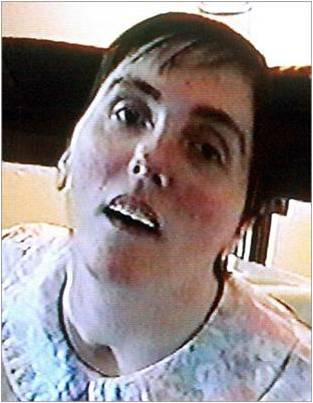
But even this couldn’t stop the legal juggernaut from occurring, and in May 2005, Terri’s feeding tube was indeed removed, and she died 13 days later. As these images show, not only was Terri very much a shadow of her former self, but her brain was very severely damaged. But in principle this doesn’t mean she wasn’t conscious. How can science help ascertain whether people like Terri are indeed still conscious, and by how much? And can it also help heal such severe damage and return such people to full consciousness, if indeed awareness has been robbed from them?
Animal Torments?
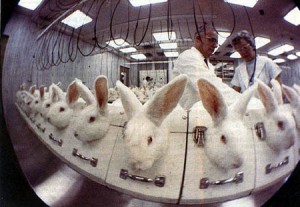 And what about consciousness in other animals? Every person on the planet, on average, consumes twice their weight in animal derived food each year. Much of this food is intensively farmed, with minimal considerations for the animal suffering.
And what about consciousness in other animals? Every person on the planet, on average, consumes twice their weight in animal derived food each year. Much of this food is intensively farmed, with minimal considerations for the animal suffering.
Animal experimentation for research, and to test commercial products, could be causing the suffering of many millions of animals yearly.
If no animals except humans have consciousness, then you can’t have suffering when you don’t have consciousness, so there’s no problem. But if even apparently mentally far simpler animals, such as poultry and fish, have a substantive awareness and significant capacity for suffering, then are we justified in inflicting all this pain and discomfort on them?
If science could come up with some means of testing consciousness in other animals, and perhaps also a way of gauging the extent of consciousness when it’s found, then this would have a huge ethical impact on all spheres of the animal rights debate.
Iphones have rights too, you know!
When the first computers were invented in the 1940’s, they were room sized monoliths, dependant on long snakes of punched paper for input, and could do little more than basic calculations. The pervasive, profound way that computers now impact on our lives must appear quite miraculous to any operator from those early days, who was somehow transported to the present.
Although I don’t think any computers at present have any form of consciousness, many are excellent at giving the impression of conscious thought. If you have one of the new Iphones, you might have played with Siri, a pleasing female voice that you can speak to. You can ask her questions about the weather, if there are good local Chinese restaurants around, or you can get her to add an item to your calendar. Siri does such a good job of “understanding” its owner’s wishes and requests, that it is easy to mistake it for a real person (there is an episode of the sitcom, The Big Bang Theory, where Raj basically falls in love with Siri!). In the interests of balance, I should also mention Google Translate, which started life as a laughably poor product, even when translating between very popular languages, such as Spanish and English. However, if you’ve used Google Translate lately, you should have been incredibly impressed. It can translate between over 50 languages, can guess the foreign language if you aren’t sure, and usually does an extremely believable job of translating a section of text for you.
Computers are inching ever closer to human-like thought, and, intriguingly, are also converging on human neural architecture. The “cloud” of multiple digital locations, capable both of parallel storage and processing equally describes how companies like Google manage most of their online products, and how human brains operate.
Indeed, scientists are exploiting the immense processing power of current computer chips (especially academic-oriented graphics processing units, which are a better match for brains than conventional chips) to make crude, but not that crude, copies of simpler animal brains. For instance, a colleague in my department, for his PhD, is trying to represent inside a PC a similar number of neurons, and activity and connections between them, as in a monkey brain.
I happen to believe that it is only a matter of time before we generate real consciousness in computer form, and if we assume that a mouse, say, is conscious, then I think so will computers be within 10 or so years. Human consciousness may take far longer to artificially manufacture, but this is merely an engineering issue, rather than something that is in principle impossible in any being that isn’t a human with its biological brain. Most of us, I think, share this intuition at times.
Characters like Data in Star Trek, or the replicants in the film Bladerunner, are utterly believable as robots with human-like consciousness. And both these characters help us explore the difficult future ethical decisions we may face surrounding beings we manufacture, who may match us in awareness, intelligence and possibly also the capacity to suffer. One sensible position would be to somehow match the rights or status according to the level of consciousness achievable by these robots – but how could we assess this? Will science be able to come up with some consciousness meter that works not only on other animals, but even other robots as well?
Is consciousness even a physical thing?
Strangely, although many of us have no problem believing that Data is conscious, we carry conflicting beliefs that our own awareness is quite different to the biological computer in our own heads, even though many neuroscientists (including me) cold-heartedly claim that consciousness is entirely supported by our brains, and will disappear when we die.
I’ve had a surprising number of chats in the pub about consciousness, and many people just think you cannot reduce this staggering array of different, vibrant human potential experiences to a lump of spongy organic matter weighing about a kilogram. It’s in some ways not surprising that this position is so pervasive – after all, almost all religions assume that our consciousness isn’t even a physical thing, and once our physical bodies have perished, the mental part of us can live on.
Much of the study of philosophy, historically, was shouldered by philosophers, and many arguments have been given to support the religious view and proclaim the unique nature of consciousness. Rene Descartes, in the 17th century, proposed a series of “proofs” for why the mind was independent of the body and, by extension, the entire physical world. To Descartes, there was nothing in the physical world like consciousness, which is singularly subjective – no one else can ever truly know what I experience. Modern philosophers have extended this point, and have continued to make trouble for scientists like me, who assume that there is nothing else except for the physical stuff in the universe, so consciousness must also be physical in some way.
Other modern philosophers have argued that characters like Data can only ever be a fiction, and that it is impossible for mere computers to be conscious and to grasp meaning.
Getting a foothold
So with so much at stake ethically, with some of our everyday intuitions, and many philosophical arguments dating back centuries suggesting that consciousness is quite different from the normal physical features that science explores, is consciousness even the kind of topic that science should be studying? Many psychologists and neuroscientists, for these reasons, have shrunk from the topic, declaring it off limits for science.
This is all quite understandable in some ways, particularly because of the seemingly intimate, inevitably subjective nature of consciousness. This does give the field an impenetrable, admittedly magical atmosphere, and reflects the superficial impossibility of scientifically capturing consciousness.
But Francis Crick, one of the giants of 20th century science, with an untamed curiosity, and a first-rate intellect to accompany this, dissented from this meek view. He decided after a long, sparkling career in genetics, which included the discovery of the structure of DNA, to spend the last period of his life to cracking the science of consciousness. Although he sadly didn’t live to see a clear solution to the problem, he made some critical progress. More important than this, though, he helped make consciousness an acceptable field for science to study. Now, two decades down the line, we have a very robust, active research community. My department is hosting the next conference meeting of the Association for the Scientific Study of Consciousness in the sunny English seaside town of Brighton and over 400 hundred papers have been submitted for this. I would imagine about 600 scientists and philosophers, all with a major research focus on consciousness, will attend (though everyone, including the general public, is welcome to register too, if anyone reading this fancies coming!).
So how does science get a foothold on such a difficult topic as consciousness? Actually, it’s not really as difficult as all that. Most of science breaks down to exploring some process by manipulating it as much as possible and observing the effects. Consciousness is no different.
Although we might not be absolutely clear about what consciousness is, we are all (pretty much) agreed that we have as much of it as possible when fully awake, and little or none when in a coma, under general anaesthesia or at the deepest parts of sleep. So we can examine how the brain changes when we move from full wakeful consciousness to minimal consciousness. On a psychological level, we can also investigate what forms of thought and learning leave us when consciousness erodes, and what forms remain.
By the same token, we don’t need to know the precise definition of consciousness to know that some stimuli are too faint for us consciously to detect, whereas others are clearly seen. Similarly, we know that the experience of seeing a house is a very different experience to viewing a face. So we can also examine how brain function changes when we flip between these experiential states. Again, we can also investigate how learning, attention and other kinds of thought change as consciousness changes, and build up a psychological picture of consciousness as well as a brain-based one.
In future blogs, I’ll be going into the science of consciousness in far greater detail, but the next blog planned will be delving a little into the philosophy of consciousness, and especially how views like Descartes’ that try to place consciousness outside of the physical world – and scientific investigation – are fundamentally flawed.




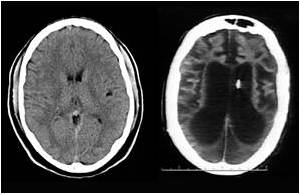


40 comments
Skip to comment form
Interesting post Daniel! I look forward to the rest of your post series and your book too.
Because this seems relevant to your next post, I hope I can nudge you to give your answer to a question that I cannot answer, and also no one I have asked has been able to answer, which is where is the cat?. I’m not an exert on this but I can’t personally see how a hard materialist position can coincide with subjective experiences like the mental pictures we make. Would love to hear your opinion on that!
Author
Hi Warren,
Thanks for the compliment and for commenting!
I was impressed by your blog article, and very much enjoyed reading it. Steve Fleming (a colleague) I see has already commented in a very similar way to what I would have said, but I’ll just add that part of the problem may be an ambiguity in the word “cat” in that context. I think if it was defined more precisely and clearly, then it would be easier to answer the question, or at least know how it could be answered!
Daniel, I enjoyed your article. I find this topic fascinatiing. I am a physician in the U.S. and deal with very ill patients in various states of awareness all the time. This often prompts my curiosity on the subject of consciousness almost daily. I am not a religious person in any way but I find the ability to understand consciousness requires a bit of a leap of faith at this point of our understanding. It does appear that the whole is more than the sum of the parts. It is not possible to reduce the brain down to it’s elementary components and find what makes it tick. It is the whole that is needed for consciousness. This concept can also be applied to the human as an organism, societies, ecosystems, etc. So I think that maybe there is a little bit of “magic” that is hard to pin down in order to truly understand consciousness. Just a thought.
Author
Hi Jeff,
Thanks a lot for the comment. I couldn’t agree more that the brain, like the body, and many other complex systems, is very much more than the sum of its parts, and this particularly applies to consciousness. I talk about this at length in my upcoming book.
The only slight note of dissent I’d sound is that this point doesn’t have to lead to “magic”. Instead, it implies science has a great challenge fully to understand both the brain and consciousness, to comprehensively get to grips with the machinery, and eventually to dispel any whiff that magic is going on.
I agree. When does your book come out? Will it be available on iBooks? Best of luck.
Author
Thanks Jeff. The book is out (in the US at least, not sure about dates for other countries yet) on 1st September. I know there will be an ebook, but don’t know about iBooks. I guess there will be, though. I’ve recently found out that there will also be an audio book version of it, if you’re interested in that format.
I don’t know of an operational definition (Please google “operational definition” if you do not understand the term before responding to this post.) of consciousness that is accepted by neuroscientists. Remember that definitions are neither right nor wrong but rather useful or not useful. Without an operational definition how do you propose to study consciousness?
Author
Hi Daniel,
Thanks for the thoughtful comment.
You’re right that a lack of agreed operational definition is a problem, and it is one all researchers in the field need to be mindful of. However, I gave some examples in the last section of how progress can be made (and is being made!) without an operational definition. I will expand on these details in future posts (and I mention this a lot in my book!), but will just add a couple more points now.
First, there are pockets of the field, such as metacognition (which can be thought of as consciously knowing that you have knowledge of something, e.g. “I know/am aware that I can see the monitor in front of me”), which can be roughly classed as an operational definition, since they are measured mathematically (usually via signal detection theory). Some researchers (e.g. see this review paper) claim that this is all consciousness boils down to, in which case signal detection theory is capturing everything. I don’t agree with this, but it at least illustatrates areas of the field that are studied in the way you seem to be calling for.
Second, that we don’t have a fully agreed operational definition yet doesn’t mean we aren’t moving towards one. Various researchers are proposing operational-level theories of consciousness, and we can run experiments to test the usefulness and accuracy of such theories. And the more research we carry out in cruder ways (as mentioned in the last section above), the more data we can use eventually to build a comprehensive working definition of consciousness.
Daniel
The important thing to realize in this discussion – and exemplified in the two points you made – is that consciousness exists as a component of a model (or different competing models each with their own definition of consciousness) and nothing useful about consciousness beyond that model can be said. The model either predicts well or it does not. If it predicts well then it will probably be adopted and people will mistakenly think the definition that it uses for consciousness is a “real” thing.
This is the same as in all science but unfortunately it is often forgotten. Atoms, for example, exist only as part of an atomic model. An atom is not “real”. Saying such things amongst lay science buffs will often elicit scorn. Even amongst scientists saying such things will elicit scorn more often than not. But if you can quiet the scornful for long enough then one need only ask: If atoms are “real” then which atom is “real”? The Rutherford model? The Bohr model? The post quantum theories models? The Standard model? That usually gets the point across.
An operational definition of the Mind or formula for Mind was defined with Einstein’s ToR. The Mind is formulated as Space + Time = the individual Mind. Consciousness is a function of the formula of S + T, where the brain is S and (broadly) culture (more specifically how sensory inputs are unique to a single system of peoples) is T. Consciousness is dependent on both S and T. The duality of Nature and Nurture was solved with Einstein. Nature = Space and Nurture + Time; Einstein modeled the universe after the mechanics of his own mind.
You cannot have individual consciousness with just the brain, it also requires Time. All systems converge (TOE) when using this model. Andy
Daniel,
I just discovered your blog yesterday and am “excitedly conscious” that I found it. Indeed, the philosophical, psychological, spiritual, and biological explanations of what consciousness is offer a diverse menu from which to choose.
I am interested in your perspective of the concept of “flow” as Mihaly Csikszentmihalyi purports. As a side note, I also agree with Jeff above that the sum of what consciousness is so far escapes our ability to dissect and reduce it down to individual parts. However, I am grateful that we now have the scientific permission to do so.
Here’s to serendipitously hopping on this “magical ride” of understanding consciousness through science and holistic thought….
Kenny E. Williams
Author
Hi Kenny,
Thanks for the eloquent comment.
I think “flow” is a fascinating subject. In case you misssed it, there was a good New Scientist article about it a couple of months ago. I think it provides important clues about the purpose of consciousness, but the research is somewhat in its infancy at the moment.
Thanks, Daniel, enjoyed this; looking forward to your book. Hope it’s going to be available as an e-book? Lovely pictures of Lalana!
Clever rhetorical use of the word ‘magic’ at the outset (meaning something irrational and silly like idealism)! I was thinking about magic the other day, listening to a programme about Dr John Dee on R4. Magic was really just the science of the time – something real that couldn’t be seen. Gravity was considered magical, which it is really. Gravity may be due to the variable resistance of particles in a field of Higg’s bosons, but it is meets the criteria for magic i) exerting an effect ii) arcane, but accessible to certain gnostics (in this case, particle physicists).
So in one sense, consciousness is magical (difficult to understand and explain; awesome; powerful) but might in principle be explicable by careful scientific enquiry by magicians such as you!
A second sense of ‘magical’, which I think you imply, is that of a non-contingent meta-reality, breaking faith with the strict materialist dogma that everything is contingent on some-thing else. The idea that consciousness might be a meta-reality (in the way that a set of eternal, necessary super-equations [rather than god] that might have brought the universe into existence would be a meta, non-contingent, reality) is ‘magical’ in this sense, but not in a third sense (which you perhaps also mean) of ‘silly and irrational’.
Like many people (all of whom know that alcohol and heavy blows to the head affect your consciousness), I’m not sure how demonstrating the contingency of human consciousness on neuronal integrity (which I sadly see every day in my stroke patients) disproves the concept that consciousness might be magical in the second sense (i.e. a meta-reality) or makes it ‘magical’ in the third, perjorative sense.
Again, it will be difficult to determine whether shutting down HAL or retiring a replicant is actually murder (although I accept that, philosophically, you might be skeptical that anyone else is conscious). Passing the Turing test is becoming fairly easy but I would have no qualms about retiring Siri if I ever upgrade my I-phone!
The questions you raise about the ethics of abortion and withdrawal of support for people with PVS are fascinating and highly topical. I wonder what you mean my ‘conscious’ when you question whether very young children are conscious. The recent philosophers such as Singer who have suggested that infanticide is morally equivalent to abortion (and morally acceptable) mean self-aware, but I usually think of a patient as conscious when they are able to interact with me, or are at least able to interpret sensory data, whatever level of self-awareness they still possess. Regardless, careful developmental psychology and neuroscience may (and already to some extent has) show different levels of self-awareness at different ages. What strikes me as odd is that this is seized upon by these radical philosophers as justification for treating these people as sub-human. If I am under general anaesthesia I am presumably, by this line of reasoning, temporarily dead and without rights. Only the thought of the probable return of my selfhood, complete with self-awareness keeps me viable as a human proposition. Which idea of future probable selfhood could of course be applied to the unborn and infants.
The idea that science can determine morality in some objective fashion (which I realise you might not be going as far as suggesting) is question-begging. Science can furnish us with material facts, true, and can inform an ethical debate, but there are no logical ethical consequences of these facts without agreed premises. You say it’s relevant to discover whether other creatures suffer. This must mean that suffering is bad, which is an utterly unscientific statement. Suffering in others creates certain patterns of firing in my amygda, that’s scientific, but on the other hand, some people’s amygdalas produce no or opposite patterns i.e. they are indifferent or relish the suffering of others. What shall we do with it all?
I await your next post with interest!
Pete
Author
Hi Pete,
Thanks so much for a wonderful, very thought provoking comment.
Yes, the book will be available as an ebook, but a few weeks after the hardback publication date (which is 1st September)).
In terms of what I meant by “magic”, I was assuming – I think! – the second sense you list. If I’ve understood you correctly, someone believing the first sense assumes consciousness only appears magical, but believes that there are mechanistic explanations which science has found or will discover to explain it. I think if you take an historical perspective, which I was touching upon, then it’s unfair to call a person’s view silly and irrational when virtually no one around has knowledge of the brain.
To expand a little on what I meant, imagine a 19th century watchmaker. He beavers away at the cogs and springs of the watches he makes, and ponders on whether the entire universe works in a similarly machine-like way. He knows of Isaac Newton’s ideas, and the elgance of that view chimes so closely with his own work, that he finds it easy to assume that every part of the physical world is a kind of giant machine, analogous to the watches he creates every week. But then he turns to the question of “life”. Even if there are machine-like aspects to his own body, why is he alive, when his watches are not? There seems some special extra ingredient that sets life apart, distinguishes it from the clockwork nature of the stars and planets above him. It easy for him to assume that life, alone in the universe, doesn’t follow physical laws, is outside of that sphere of understanding, and is some kind of magic, perhaps God-given. He is emboldened to maintain this view, given that it is almost entirely universal, a collective assumption in the special nature of life, which means there is no point scientifically studying it.
We now know, of course, that this view is wrong, that the body is nothing more than a kind of machine. You don’t need any extra magical ingredient to explain how some things are alive and others not. It is all just about whether this immensely complex biological machine is too damaged to function anymore or not. The complexity is a vital component here. If something is too complex to explain, we, historically have collectively been far more likely to look for “magic” explanations of various kinds. The human brain is the most complex object known in the universe – by quite a distance. So in that sense, it’s understandable that the thoughts and experiences it creates will sometimes be interpreted by us as so mysterious, so alien, as to be outside the realms of science. My point is that we shouldn’t be intimidated or intellectually overwhelmed by this complexity. So many times in history, science has converted magical explanations to explanations of the mechanics of interacting physical objects. We should learn this lesson for consciousness too, start by assuming it is created by physical machinery too, and the human brain is clearly the computational machine we should be studying here.
I think we are all naturally particularly good at holding conflicting beliefs about consciousness. Most of us take some kind of physical substance (alcohol or coffee) on a daily basis that changes our consciousness by changing our brains, and we know this chain of cause and effect – kind of. But we are also very quick at brushing it aside in the face of the special subjective, apparently non-physical nature of awareness, which appears at first blush to be a separate kind of state to the physical features of the universe. This is one of those natural sets of beliefs we need help untangling, and that should be where science and scientists step in.
Of course an Iphone isn’t conscious, and the chatbots that (almost) pass the Turing Test now aren’t either (I’m actually not a big fan of the Turing test, and think we either need to reformulate it, or devise a completely different test). But I also think that when consciousness does significantly arise in artificial life, it won’t be that hard to detect as conscious, and I hope we will be quick to imbibe such beings with the same rights we apply to real life.
I totally agree that it is not the place of science itself to make ethical decisions. I was just trying to suggest that many ethical debates are still so fiercely fought because we are unclear about whether a given being is (or has the potential to be) conscious, and if they are conscious, by how much. If science could provide a kind of meter for consciousness, then I think this would drastically cut down on the arguments, and perhaps even entirely resolve certain ethical problems (I devote a chapter to this in the book).
Thanks, Daniel.
I entirely agree that consciousness and brain function is an appropriate subject for scientific enquiry and it has proved enormously fruitful both in terms of helping us better understand the mind and also to treat mental and ‘organic’ brain disease.
I’m not questioning the contingency of the brain for thought and human consciousness (no extra ‘magical’ [as you put it] ingredient is needed), but consciousness demands a further level of explanation (personal). Without wishing to unhelpfully pigeonhole you, I suspect you might describe yourself as an emergent materialist: what emerges is, as you said, more than the sum of its parts. Explaining the cause of something is not the same as explaining the properties of the thing itself.
Of course pre-moderns had little understanding of the brain or much of modern science and so their ideas were not naive. However, to call something ‘magic’ today implies (I think) a naive superstition. I was attempting to unpick the word ‘magic’ (and playfully reclaim it) to suggest that there is no need to make a false dichotomy between ‘science’ and ‘magic’ or ‘natural and ‘supernatural’. Both are descriptive and explanatory and the underlying assumptions of both can be questioned and debated.
It made more sense in the Enlightenment to talk about ‘natural’ and ‘supernatural’ phenomena. Newtonian mechanics had shown that the universe was a neatly ordered chain of causal events and gave mathematical precision to a common sense view of the world as solid and predictable. There was then the ‘supernatural’, ‘religious’ realm that was outside of such considerations. As science advanced, the supernatural realm was squeezed and the ‘god of the gaps’ receded until some felt that, in the words of William of Ockham “I have no need of that hypothesis”. (I don’t want to hijack your blog for a debate on religion, but I’m trying to unpack the metaphysical questions of consciousness, so bear with me). Our current understanding of the universe sounds much more like the theories of a scholastic theologian or Greek philosopher – imaginary numbers, curved Hilbert space-time, the uncertainties of quantum mechanics and the speculative cosmology of bubble universes, meta-equations, etc. I’m not doubting these things beyond what is scientifically appropriate (there is clearly more doubt about the cosmology and it may not be possible to do better than several plausible models, but I’m happy to be corrected) but I think it underlines the point that there is nothing very common sense about matter any longer. So in a quantum universe, what is magic? What is material and immaterial? In one sense, if the matter in the universe could be described (as Michio Kaku put it) as “cosmic music resonating through 11-dimensional hyperspace”, then the ‘physical’ universe might be considered as essentially data. Could it be that thought came first? But now I’ve strayed well into theology so I’ll leave it there!
Pete
Having re-read my post, I am conscious (you will have to take my word for it) that the first bit, defining magic, is a little unclear. You might define magic in the second sense as a non-contingent meta-reality, just as god or another eternal necessary cause of the universe/multiverse is a magical idea and apply this sense to a Cartesian dualistic view of consciousness. However, you might alternatively take a ‘2 prime’ magical view (which I implicitly do in the next paragraph) that consciousness is a meta-reality, but that human consciousness, whilst still contingent on matter, has a Platonic reality, in the same way that mathematics describes matter but has its own Platonic reality (A diagram describing this from Roger Penrose’s book “the Road to Reality” is reproduced on this web page: http://www.turing.org.uk/philosophy/ I can’t seem to embed the image in my post). This, I’d argue, is not magical (sense 3)!
A most interesting and worthwhile contribution to the debate on this fascinating topic. I very much look forward to reading your book and to further postings. When reading papers on consciousness I am reminded of a cartoon I saw some years ago depictting two men in lab coats before a blackboard on which is written an elaborate mathematical formula. The formula is split into two parts and between them is the phrase ‘ ‘at this point a miracle occurs.’ One man is saying to the other – “I feel we need to specify the middle term more precisely.” I think the same applies to consciousness. Good luck with your continued work and blog
When you refer to “the science of consciousness”, I’m not sure what you mean. Consciousness itself is unobservable. We can observe human behavior, and study it scientifically. We can observe the way neurons work, and study them scientifically. We can perform functional MRI and PET scans to learn about the way the brain works. We can observe the neural correlates of consciousness, but we simply cannot observe consciousness itself. This is not a matter of being in the early days of neuroscience, it is an inescapable feature of a phenomenon that is subjectively experienced not objectively observed.
Author
Hi Nick,
Thanks for the comment. And your issue about the externally unobservable nature of consciousness is an important one, that many philosophers raise in various ways (as I related a little in the blog). This precise issue put psychologists off studying consciousness for many decades.
Actually, though, researchers have discovered that it’s not as great a barrier as it at first appears. In order to make any progress at all (in most of cognitive neurocience, really – not just consciousness), we have to relax our rigour just a little and make a tentative assumption that what the person is consciously reporting in an experiment is what is happening in their conscious minds, and that external behaviour is not the only thing we’re ever studying. If we then map this onto reliable features of the brain, or behavioural patterns, we can start to build models of the process, like in any other science.
I agree that merely showing that some brain region is associated with some aspect of consciousness, although a start, doesn’t get you very far. The important goal is to uncover the mechanism, to show the workings of the neural machinery and how that generates consciousness. We are inching towards this, and there are provisional theories that are essentially mechanistic. I’ll try to cover all this in future blogs (and try hard in my upcoming book, THE RAVENOUS BRAIN, to address this issue as well).
A final point to make is that it all depends on your definition of consciousness. One prominent consciousness scientist, Victor Lamme, argues that we should be defining consciousness entirely in neural terms (concerning how certain different brain regions communicate with each other). I think it’s too premature to make such a definitional leap, but just wanted to emphasise that there are current models of consciousness that claim it is very much an externally observable process.
I’d say Lamme’s definition is a bit of a cop out! 🙂 It’s almost like saying, if we can’t answer the hard problem of consciousness, let’s redefine it to a softer version!
Warren
Maybe the “hard problem” is hard because it is nonsensical. Operational definitions are key components of every theory. I do not know of any theory that is not built upon operational definitions of its component parts. What is the operational definition of consciousness in the “hard problem”? Also, please consider that definitions are not right or wrong the are simply useful or not useful. It could very will be that even if you had an operational definition in the context of the “hard problem” it still would not be useful.
I don’t know the operational definition of consciousness (or how to get one), but if it can’t be operationalised, does that mean it’s nonsensical?
An operational definition of a property gives one the explicit means to decide whether a system has that property or not. I don’t see another way.
Author
Lamme’s motivation for relying so much on features of the brain to investigate consciousness is because of psychology experiments that appear to show that we are conscious of a lot more than we can report. So, for him, given that we can’t trust our own reports of what we are conscious of, redefining consciousness in terms of brain processes is a more reliable and fruitful research direction.
It makes little sense to me claim that we are conscious of a lot more than we can report at a given timepoint, so I’m not a fan of this theory, I should emphasise.
As for the hard problem of consciousness (which, for those that don’t know, is simply how exactly can a brain give rise to something so mysterious as our feelings and sensations), as you might have guessed from the main article, I’m not a fan of this either, and largely side with Daniel Dennett on this point at least. He asserts that there isn’t a hard problem, and that science will eventually show this when it fully explains consciousness. I’m a little less dogmatic, though, and would say that it makes sense to go by the starting assumption that there is no hard problem, and we should only begin believing in a hard problem once we’ve exhausted the scientific investigation of consciousness, and still failed adequately to explain it.
Again, the hard problem seems to me to revert to impressions of magic – that consciousness is such a weird, mysterious, alien entity that how could it possibly have a physical, scientific explanation? As I said in the main article, we should resist the impulse to go down this conceptual path, and instead relish the chance scientifically to study something so apparently challenging!
“we should only begin believing in a hard problem once we’ve exhausted the scientific investigation of consciousness, and still failed adequately to explain it.
Again, the hard problem seems to me to revert to impressions of magic – that consciousness is such a weird, mysterious, alien entity that how could it possibly have a physical, scientific explanation? As I said in the main article, we should resist the impulse to go down this conceptual path, and instead relish the chance scientifically to study something so apparently challenging!”
I pretty much think the same thing, but just curious, how would you know that the scientific investigation is exhausted?
Author
Good question – I suppose if we found out everything there was to know about the brain and how neurons code all types of information, but still had no clue about why we have feelings and sensations and why they take the particular experiential features they do, we might be tempted to throw in the towel. We probably have a few centuries to wait for this point, though!
As it is, I’d say science is already showing tentative signs that Dennett is right, and that there is no magic (or hard problem) to consciousness, just neural mechanics.
I’ll remain skeptical until someone tells me where the cat is. 🙂
Warren
What do you mean where you say: “Where is the cat?”. Do you mean it’s position in space and time? Do you mean it’s neural representation within your brain? “Where” is too ambiguous to me?
But regardless of what “where” means in your question isn’t it true that the cat has a place only in the context of a model which incorporates cats.
I referred to a comment I made earlier, where I ask where the mental image I can create of a cat is located. Not the neural representation, the actual image I perceive in my mind’s eye. Yeah what is its position in space and time. And if it doesn’t have one, then what?
I don’t understand your second question!
I don’t think the “mind’s eye” perceives. I think it imagines. Aren’t those two very different things. How is this “actual image” an image or actual?
The second point I made has to do with the operational definitions of the things we observe. I think that to say that a thing exists independent of the operational definition of that thing is not valid. Furthermore the definitions that we form are always part of a theory that integrates the thing into or understanding. Sometimes those theories are so crude or simple that they seem to be not theories but simply “the way things are”. I think that the acceptance of the realness of the things we define is the source of many nonsensical questions.
DS
“I don’t think the “mind’s eye” perceives. I think it imagines. Aren’t those two very different things. How is this “actual image” an image or actual?”
OK, well where is the imagining of the cat then? Or whatever you want to call it; the thing that I imagine when I make a mental image, where is it?
“The second point I made has to do with the operational definitions of the things we observe. I think that to say that a thing exists independent of the operational definition of that thing is not valid. Furthermore the definitions that we form are always part of a theory that integrates the thing into or understanding. Sometimes those theories are so crude or simple that they seem to be not theories but simply “the way things are”. I think that the acceptance of the realness of the things we define is the source of many nonsensical questions.”
Ah, I see. I think things exist, and operational definitions are just different ways of looking at them.
Warren
Things exist but does a thing exist as defined? Certainly not.
It’s helpful, exciting and worthwhile to study the neural correlates of consciousness, but nerves firing isn’t consciousness; this isn’t a magical statement or one that in any way denies the necessity of intact neural circuitry.
Daniel, thanks for your thoughtful reply. I’ll be interested to read more of your thoughts on this subject.
It’s a good and a thought provoking article. I am just a curious person who wants to learn on how human mind works and perceives the things around us. What I really liked about the article are the examples used to show the presence or non-presence of consciousness like in case of animals (which is a very debatable topic).
I really look forward to your posts.
Author
Thanks a lot for the comment, Sushant. I’m glad you enjoyed the article!
Daniel,
I came here from Slate and I like what I see.
Perhaps you’re aware of “contemplative science”, the name given to the idea that introspection is an invaluable component of the study of consciousness. On one level this seems fairly obvious — after all, Wilder Penfield would’ve never been able to do his groundbreaking early work in mapping the brain had it not been for first-person reports from the people whose brain’s he was poking.
But contemplative science goes a little further than this, suggesting that, because introspection is so deeply flawed, energy should be expended in developing more sophisticated forms of exploring consciousness from the inside. Meditation is the obvious candidate, and indeed I first heard about the idea from my reading of buddhist scholar B. Allan Wallace, with whom I have many disagreements. But Sam Harris has thoughts along this line as well.
We may not ever find a good solution to the hard problem, but we can possibly circumvent it, in a way, by not neglecting introspection at the expense nicer fMRI machines.
Personally, I view reality as a Dualist. I think of myself as a spirit being within a body/brain. My spirit could also be viewed as my consciousness. Consciousness (my spirit) produces my words and my thinking as well as what I see, hear, feel, smell, and taste. The idea that my brain neurons (neuronal correlates) produce my consciousness seems totally backwards. Rather, it is my spirit (consciousness) which activates my neurons (brain). My consciousness sees objects outside myself and then this inside/out flow continues with my senses revealing what my consciousness perceives. So, to me, I view myself as a Dualist (my mind is totally separate from my brain/body) but works through it to provide me with sight, words, sounds, etc. When I pass on, my spirit (consciousness) will continue eternally. Consciousness, to me, is non-physical, immaterial, and metaphysical. I can only speak for myself, however, so if you are a materialist and view your brain as your self/being that is your privilege. As a teacher of economics, I find that Dualism is fundamental to most economic theory. D
Author
Thanks for the comment, Don. I’m afraid, though, that we are diametrically opposed in our views!
I don’t view dualism/materialism as a matter of opinion, but a question amenable to scientific evidence and logical argument. In other words, there is a right or wrong answer. And as I argue in places on this website, and more at length in my book, The Ravenous Brain, Cartesian Dualism, when you explore it deeply, is nonsensical.
So you seem to propose, by suggesting your consciousness is non-physical, and will continue eternally, after your body has decomposed, that there can be a non-physical substance (e.g. consciousness), that is independent of matter, and has no spatio-temporal location (which is a property of all matter). This position allows for the possibility that your consciousness is as connected (or unconnected) to your body as it is to my body, or to a rock on Mars, or to an entire galaxy a billion light years away. Your identity, your mental essence, could equally reside in any of these locations, or none of them. If it has no physical root, it has no attachment to your body, right? That’s just what you’re arguing. If there was even the slightest attachment to your body, your consciousness would be partially physical, and partially damaged, if not destroyed, when your body dies.
But we very intuitively and very strongly attach our consciousness to our bodies, and not to other people’s bodies, or to that rock on Mars, for instance, because we probably have enough natural evidence from normally consciously existing to know that there is something inside us, some part of our bodies, that generates our consciousness. Now, in modern times, every time surgeons tinker with the relevant part of a patient’s body (the brain), they can change their consciousness, sometimes profoundly. Brain injury from traffic accidents produces similar results. As neuroscientists and neurosurgeons, we can take one step further and directly activate, or record from, neurons, and generate, or map, the activity onto conscious events. Activate this neuron and the patient has a specific memory, activate another neuron and the patient starts to laugh. So we have more direct scientific evidence, if we look for it, that consciousness is generated by our brains.
Your analogy with economics is an intriguing one, and suggests to me a confusion on your part between different kinds of dualism – either that involve complete independence between the layers or that requires some dependence. Your consciousness-dualism involves complete independence, but economics does not. I agree money is an emergent property of human interaction, and somewhat separate from humans themselves – an abstracted layer. But, critically, it’s not completely independent of humans, just as consciousness may emerge from brain activity as an emergent property, but is not independent of it.
The analogy works better for my argument than yours: if that physical substrate, all humans, ceased to be, there would be no such thing as economics. Similarly, if a single brain ceased to be, there would be no consciousness for that person.
Daniel says: I don’t view dualism/materialism as a matter of opinion, but a question amenable to scientific evidence and logical argument. In other words, there is a right or wrong answer. And as I argue in places on this website, and more at length in my book, The Ravenous Brain, Cartesian Dualism, when you explore it deeply, is nonsensical.
Comment: I would agree that dualism vs materialism is a philosophical worldview. It is amenable to logic and real-time evidence. Dualism has a long history and it started, for me, with Socrates. Plato then popularized various concepts of Socrates as he espoused much of what Socrates thought (prior to his death via hemlock). Your view seems illogical to me. As an economist I would suggest that the concept of ‘value’ is fundamental to trade, money, and commerce. What is ‘value’ in your mind or worldview? Are you aware of this fundamental concept of economics?
Value, to me, having worked with this economic concept for 50 years is subjective and part of my inner being or consciousness. Value has NO outer existence within our material space/time universe. It is an inner concept of my/your mind. This is dualism at the core. Value derives from my consciousness which is separate from my brain/body/matter/energy. Money emerged as a proxy for ‘value’. All money started out as being physical and part of nature. Later it evolved into what we have today…a digital unit of consciousness. $$$$$ is a symbol. $1.00 is a number. Dollar is a name.
Consciousness, to me, is obvious and it is fundamental to my thinking, speaking, and word selection. For me, consciousness ‘flows’ through my brain/body and then it reveals what is out there. The flow of my invisible consciousness reveals that I live within two realms of reality (the material and the spiritual/metaphysical). I think you do likewise.
Neuroscience, to me, is flawed as it looks at the other (first) and then devises a conclusion based on observation and reflection. When I look at the other, I see a brain/body and I miss the person’s invisible consciousness as it is invisible and non-physical. Consciousness is present, however, and it activates the brain and the entire bodily sense system. Without consciousness my brain/body senses would be non-functional. Does my consciousness exist as a material thing? I would suggest, No. Consciousness is not material even though consciousness flows through my brain/body.
Dualism seems to be a valid theory as it is evident within economics and is fundamental to our monetary/valuation system. You are probably not familiar with this core economic concept called ‘value’ and thus you would not comprehend its nature as being a pure concept of consciousness. My background is mostly finance, money, valuation, and recently philosophy. My worldview creates my view on consciousness and I am sure your worldview creates your view. Science, to me, is amenable to various worldview’s. I would be pleased to hear your rebuttal to my perspective. D
P.S. Daniel concludes: The analogy works better for my argument than yours: if that physical substrate, all humans, ceased to be, there would be no such thing as economics. Similarly, if a single brain ceased to be, there would be no consciousness for that person.
Your statement above reveals your worldview, Daniel. You are a materialist and do not discern that consciousness continues after my brain/body ceases to exist. Socrates challenged his elites (back in 399 B.C.) who desired to put him to death for corrupting the youth of his day. He had no problem taking the hemlock as he viewed himself as ‘immortal’. I have this same view. D